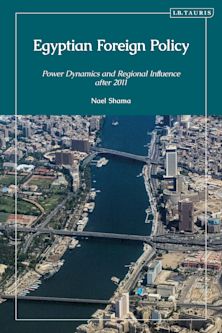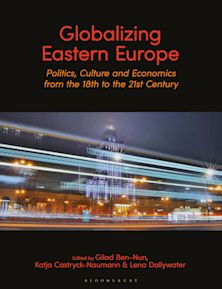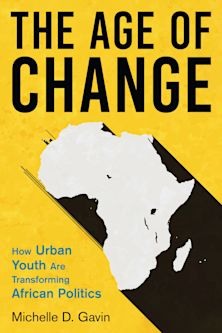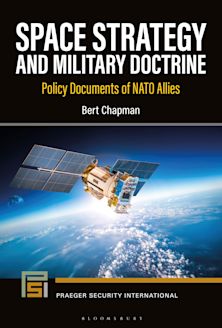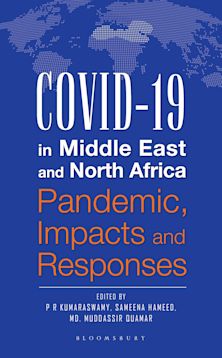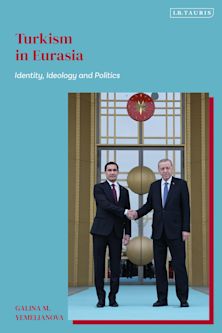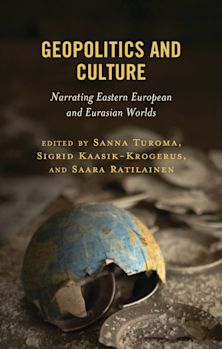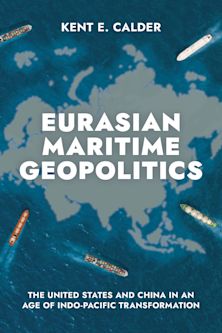Hidden Geopolitics
Governance in a Globalized World
- Textbook
Hidden Geopolitics
Governance in a Globalized World
- Textbook
This product is usually dispatched within 1 week
- Delivery and returns info
-
Free CA delivery on orders $40 or over
Description
A 2023 Choice Reviews Outstanding Academic Title
Geopolitics is not dead, but nor does it involve the same old logic of a world determined by physical geography in a competition between Great Powers. Hidden Geopolitics recaptures the term to explore how the geography of power works both globally and nationally to structure and govern the workings of the global political economy. Globalization, far from its antithesis, is tightly wound up in the assumptions and practices of geopolitics, relating to the scope of regulatory authority, state sponsorship, and the political power of businesses to operate worldwide. Agnew shows how this “hidden” geopolitics and globalization have been vitally connected. He focuses on three moments: the origins of contemporary globalization in the policies pursued by successive US governments and allies after 1945 and its continued relevance even as the US role in the world changes; the close connection between geopolitical history and status of different countries and their relative capacities to exploit the possibilities and limit the costs of globalization; and new regulatory and standard-setting agencies which emerged under the sponsorship of major geopolitical powers but have grown in power and authority as the dominant states have become limited in their ability to manage the explosion of transnational transactions on their own.
Agnew argues that it is time to move on from the narrow inter-imperial cast of geopolitics and the foolish policy advice it produces. The old perspective on geopolitics has taken on new life with the rise of national-populist movements in Europe and the United States and the reinvigoration of territorial-authoritarian regimes in Russia and China. Notwithstanding this trend, we must see the contemporary world through the lens of these complex, “hidden” geopolitical underpinnings that Agnew seeks to expose.
Table of Contents
Acknowledgments
Introduction
What is Geopolitics?
Hidden Geopolitics is Not New
Globalizing Governance
The Logic of the Book
PART I: HIDDEN GEOPOLITICS
Chapter 1: Geopolitics in a Globalized World
Geopolitics versus Globalization
Geopolitics of Globalization
Geopolitics of Development
Geopolitics of Regulation
Consequences for Hidden Geopolitics
Conclusion
Chapter 2: Beyond Territorial Geopolitics
The United States from the Perspective of Land- versus Sea- Powers
Hegemony versus Empire
Globalization and the Current Global Geopolitical Order
US Hegemony and the Roots of Globalization
Conclusion
Chapter 3: Making the Strange Familiar
Geographical Analogy and Familiarization
Why Balkan Analogies?
The Two Examples: Macedonian Syndrome and Balkanization
Conclusion
PART II: GEOPOLITICS OF GLOBALIZATION
Chapter 4: The Asymmetric Border: The US Place in the World and the Refugee Panic of 2018
The US Place in the World and the Asymmetric Border
The US Refugee Panic of 2018
The US Immigration “Debate”
Conclusion
Chapter 5: Putting China in the World
“Familiar” Analogies and the Limited Geographic Origins of Thinking about World Politics
The Making and the Travels of Dominant Perspectives on World Politics
China’s Hidden Geopolitics
Chinese Narratives on World Politics
The Politics of the Narratives about World Politics
Conclusion
PART III: GEOPOLITICS OF DEVELOPMENT
Chapter 6: Territorial Politics after the Financial Crisis
The Geography of the 2007-8 Financial Crisis
Spatial Uncertainties of Contemporary Governance
World Cities versus State Territories
Devolution to Local and Regional Governments
Conclusion
Chapter 7: Anti-Federalist Federalism
Dualism versus Polyphony in Federal Governance
Donald Trump and National-Populism
The Retreat of the Federal Government since the 1980s
The Spatial Paradox of Trump’s “Populism” and the Covid-19 Pandemic
Conclusion
PART IV: GEOPOLITICS OF GLOBAL REGULATION
Chapter 8: Global Regulation
The Rise of Credit-Rating Agencies in Rating Sovereign Debt
How Are Ratings Done?
Private Authority and State Sovereignty
Geopolitical Consequences
Conclusion
Chapter 9: Managing the Eurozone Crisis
Popular Accounts of the Eurozone Crisis
Analyzing the Eurozone Crisis
What is Ordnungspolitik?
The Limits of Ordnungspolitik in Variegated Capitalism
The Territorial Mismatch Thesis and the Eurozone Crisis
Conclusion
PART V: HIDDEN NO MORE?
Chapter 10: Conclusion
Bibliography
About the Author
Product details
| Published | Aug 01 2022 |
|---|---|
| Format | Hardback |
| Edition | 1st |
| Extent | 224 |
| ISBN | 9781538158623 |
| Imprint | Rowman & Littlefield Publishers |
| Illustrations | 1 map; 2 tables; 6 graphs; 2 charts |
| Dimensions | 228 x 160 mm |
| Publisher | Bloomsbury Publishing |
Reviews

ONLINE RESOURCES
Bloomsbury Collections
This book is available on Bloomsbury Collections where your library has access.











